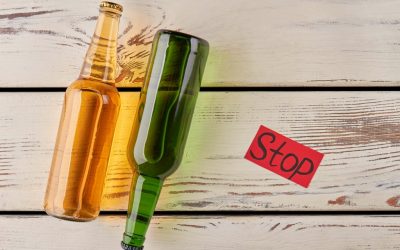I enjoy the occasional drinks with family and friends but feel i need to just why can’t i control my drinking quit altogether because i have no self control when i drink. Remember that changing your relationship with alcohol is a personal journey, and everyone’s path is unique. Be patient with yourself and others, and celebrate the small victories along the way.
- There are withdrawal symptoms, environmental temptations, and outright stress.
- You can make a change to reduce those risks and lead a healthier life.
- If it has hit you that you are drinking too much and that cutting down or quitting is not as easy as you thought it would be, you may be wondering what other steps you can take to control your alcohol consumption.
- Just think of a time when you tried to resist the temptations of your favorite dessert.
- Addiction occurs when the brain’s reward system is activated, causing the release of dopamine, a feel-good neurotransmitter, leading to a desire to repeat the behavior.
Are Lectins Bad For You? 5 Foods To Avoid
Participants were recruited through an online research participation website at a state university. After providing informed consent for the study, participants completed a baseline survey. Participants then received a link to take an online survey twice a day for 30 days.
We’re conditioned to think we should be able to control alcohol
Setting achievable goals is a great way to practice accountability and create lasting change. Align your goals to what you’d like to achieve with regards to your relationship with alcohol and your image of your ideal self. Monument treatment plans connect you with licensed physicians and therapists who can help you set goals based on your needs and preferences. Whether you’re considering quitting alcohol cold turkey, tapering off over time, or practicing moderation, your Care Team can help you set goals and identify safe and effective strategies to achieve them. Our next tip is an example of an achievable and attainable goal you can set to break free of binge drinking patterns. When we can learn to stop at the “buzz,” we are well on our way to having our relationship with alcohol fully in check.
I know you can’t outrun or out-workout a bad diet, but I guess it’s something. The Jellinek Curve illustrates the descent into addiction and the path to recovery by identifying symptoms and experiences along the way. There are other self-help resources to help you control your drinking. If you are struggling with alcohol use, Dove Recovery can help. Our programs are designed to treat alcohol use disorder effectively and with dignity. If you or your loved one is suffering, contact us to learn more about a brighter, sober tomorrow.
- Repeat this process several times until you feel more centered and in control.
- Drinkers get into more expensive legal trouble, they spend more money at restaurants, and schools are often attended based on their reputation as a party school alone.
- Accordingly, a count regression approach was used (Hilbe, 2011).
Experiment with different flavors and combinations to find satisfying alternatives that you enjoy. If you’re considering a break from alcohol, it might also be helpful to think about why you drink. “Everyone turns to alcohol for a reason,” says Dr. Mosquera. “Maybe it’s relief from your worries or connection with friends. If drinking is your go-to way to blow off steam after a busy week, schedule a booze-free, self-care activity for Friday afternoons, like indulging in a hobby you enjoy or a pampering session like a massage.
Measure your drinks.
As this happens, it is often recommended that you keep a journal or that you talk to your friends, family, partner, or therapist about these thoughts and feelings. By this time, it’s likely you’ve seen a few of the people closest to you (friends, family, coworkers). Without the influence of alcohol, you might notice that you’re arguing less, and can have more authentic conversations. If you’re still feeling irritable, or if you’re not on the same page as your loved ones, that’s okay too! That’s also common, and a great topic to discuss in a support group.
Day 11

If you find yourself feeling pressure to drink in social situations, it may be helpful to explore your motivations for drinking and find other ways to connect with others that don’t involve alcohol. Everyone who drinks now drinks more than they used to; I know this is true because at one time they didn’t drink at all. You and the drinkers you know will be drinking more in five years than you are today—that is how alcohol works. The site also delivers a list of sobering statistics about the reality of alcoholism. These statistics remind you that you’re often one bad decision away from completely ruining your life.

Create a plan of action
Once you’ve cut back on your drinking (so you’re at or below the recommended guidelines), examine your drinking habits regularly to see if you’re maintaining this level of drinking. Some people attain their goal only to find that old habits crop up again later. If one has never exhibited signs of alcoholism, then controlled drinking, a technique or approach that is a form of harm reduction, is a reasonable yet delicate first step. If one wants to pursue this approach, it is best not to go it alone. Talking to an addiction psychologist or other addiction professional can guide you through some generally recommended techniques.
Engage In Treatment Modalities such as Therapy and Physician Care
They also give useful ideas for support strategies and even more tips to help you to get your drinking under control. The irony of this approach is that I often tried to drink away this fear to socialize more easily, and I arrogantly (and wrongly) believed that I was in control. If it’s all you’ve known and you give it up out of fear, your desire for familiarity will win in the long run. However, if you are in pursuit of something new and better, you’re more likely to stick to it. Acknowledging your fears gives you the best chance of making a change.
What Are the First 24 Hours Without Alcohol Like?
It’s always wise to check with your doctor — she should be able to help you decide whether it is best for you to cut back or to abstain. People who are dependent on alcohol, or have other medical or mental health problems, should stop drinking completely. What happens if you can’t control your alcohol use with these techniques?